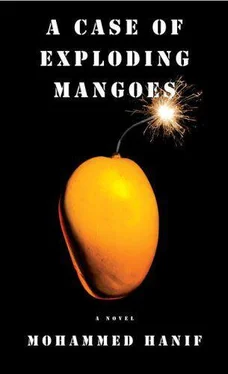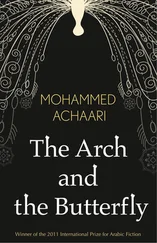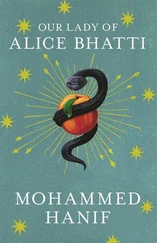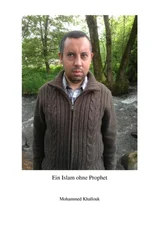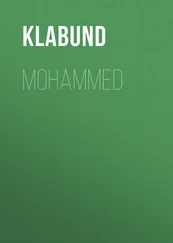On any other day, General Zia would have read the editorials, looked for negative comments, scanned the adverts for female models not properly covered, but he was so content over the coverage of his speech, his heart was so full of tenderness for the newspapers and journalists, that he didn’t see the back page of the Pakistan Times . He missed the picture which showed him in full military regalia, golden-braided peaked cap on his head and a couple of dozen medals dangling from his chest. A silk sash with the emblems of all the armed forces crossed his torso diagonally, his hands entangled over his crotch as if trying to restrain one another, drool forming in the corner of his mouth, his eyes wide open and staring, like the eyes of a child who has wandered into a sweet shop to find its owner fast asleep.
The First Lady stayed away from newspapers. There were too many words she couldn’t make sense of and too many pictures of her husband. She herself rarely appeared in the papers and if she did she was usually attending a children’s festival or the Quran recitation competitions for women General Zia dispatched her to so she could represent the government and hand out prizes. The Information Minister sent her the clippings of these pictures and she usually hid them from General Zia because he always found fault with her appearance. If she wore make — up, he accused her of aping high-society Westernised women. If she wore no makeup, he said she looked like death, very unlike a first lady. He constantly lectured her that as the First Lady of an Islamic state, she should be a role model for other women. “Look at what Mrs Ceausescu has done for her country.”
The First Lady had never met Mrs Ceausescu and her husband never bothered to explain who she was or what she did. She did take other visiting first ladies shopping, but it was no fun because the shopkeepers either refused to take money from her or quoted her prices so low that she couldn’t even haggle. The bazaars were cleared of shoppers before her arrival and she felt as if she was on the set of a television soap opera. General Zia did encourage her from time to time to read newspapers to keep abreast of the political and social changes he was bringing about in the country, but she never bothered. “These newspapers are full of what you said and what you did and who you met. And you are always here, lounging around the house. Don’t I see enough of you that I shouldn’t have to see you staring at me from every page of every single rag?”
With such indifference to the national press it couldn’t be a coincidence that the First Lady found a copy of the Pakistan Times on her bedside table, carefully folded to reveal the picture on the back page, the picture that would destroy her faith in all men forever and result in the unceremonious sacking of the editor of the Pakistan Times .
The first thing that shocked the First Lady about the picture was the amount of flesh oozing out of the white woman’s blouse. She immediately knew that the woman was wearing one of those new bras with wire construction that pushed the breasts up, making them seem bigger. Many of the other generals’ wives wore these bras, but at least they had the decency to wear proper shirts that didn’t show any flesh, only hinted at their enhanced shape. The woman in the picture was wearing a blouse cut so low that half her breasts were out, pushed up and pressed together so closely that the diamond on her necklace was resting on the cusp of her cleavage.
And then, there was her husband, the Man of Truth, the Man of Faith, the man who lectured women on piety on prime-time TV, the man who had fired judges and television newscasters who refused to wear a dupatta on their heads, the man who made sure that two pillows could not be shown together on an empty bed in a television drama, the man who made cinema owners blot out any bare legs or arms of actresses from the film posters; the same man was sitting there staring at these globes of white flesh with such single-mindedness that it seemed as if his own wife had been born without a pair.
The caption said innocuously: The President being interviewed by the famous foreign correspondent Joanne Herring .
Interview my foot, she thought. It seemed that it wasn’t Ms Herring interviewing him, but General Zia interrogating her breasts. She put the paper aside, drank a glass of water, thought of their thirty-four years together, reminded herself of her five grown-up children, of their youngest daughter still to be married. For a moment she doubted what her eyes had just seen and picked up the paper again. There was no mistaking this. It was not the kind of thing where you can write a letter to the editor and demand a correction. General Zia’s eyes, normally crossed, the right one looking in one direction while the left one wandered away to take in something else, were for once focused in the same direction, on the same objects. The angle of his stare was so obvious that if she drew two lines with a pencil, they would connect the iris of his eyes straight to the two white spheres pushed up and pulled together.
She tried to remember what this woman was wearing last time she saw her. She remembered very clearly what her husband had looked like when he saw this woman last time.
The First Lady had started to suspect that her husband was up to something when he asked her to pack his old safari suit for their US visit. Her suspicions deepened when she was told that their first stop would not be Washington DC or New York but Lufkin, Texas, where they were to attend a charity ball. Jeddah, Bejing, Dubai, London, she could understand. These were regular stops for General Zia. But Lufkin? Safari suit? The old man was definitely up to something fishy, the First Lady had thought, checking his beige-coloured, polyester safari suit for any missing buttons.
General Zia had abolished all types of Western dress from his wardrobe except for military uniforms. He always wore a black sherwani for state occasions and, taking their cue from him, the bureaucrats had all started wearing minor variations of the same dress. The more adventurous ones experimented with cuts and colours, and occasionally their headgear, but basically stuck to what General Zia had started calling the National Dress. But like all men of principle, General Zia was always ready to make an exception for a higher cause. And if the cause was a fund-raiser for Afghan jihad, then no principle was sacred enough.
The charity ball in Lufkin was being hosted by Joanne Herring, prime-time news anchor on Lufkin Community Television and Pakistan’s Honorary Ambassador to the United States; an appointment made after her four-hour-long, soul-searching interview with General Zia. Joanne was on a mission to rid the world of evil but she insisted on having fun while doing it.
And God, Lufkin could do with a bit of exotic fun.
Contrary to popular belief, oil millionaires in Lufkin have dull lives. Their political influence is marginal and only very few of them enjoy the wheeler-dealers’ lifestyle that the media outside Lufkin likes to project. Their ten-thousand-dollar donation to their local Congressman gets them a letter signed by an aide in the White House. Those with deeper pockets can splash out one hundred thousand dollars and get invited to the annual prayer breakfast with Ronald Reagan in Washington DC where the President joins them for the prayer from the podium for fifteen minutes and then leaves them to their tepid porridge and coffee. So the arrival of a president — even if this was the President of Pakistan, a country they knew nothing about — and the fact that the man was not only a president but a four-star general, the chief of the largest Muslim army in the world and one of the seven men standing between the Soviet Red Army and the Free World, as their favourite news anchor reminded them every day, meant it was time to dispatch their tuxedos and ball gowns to the dry cleaner’s.
Читать дальше
